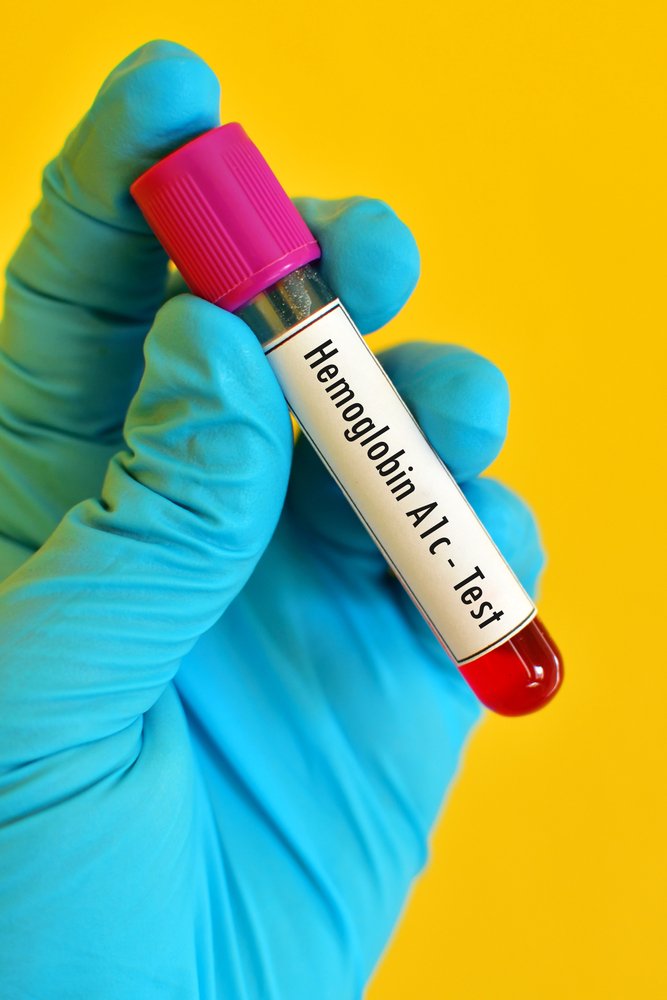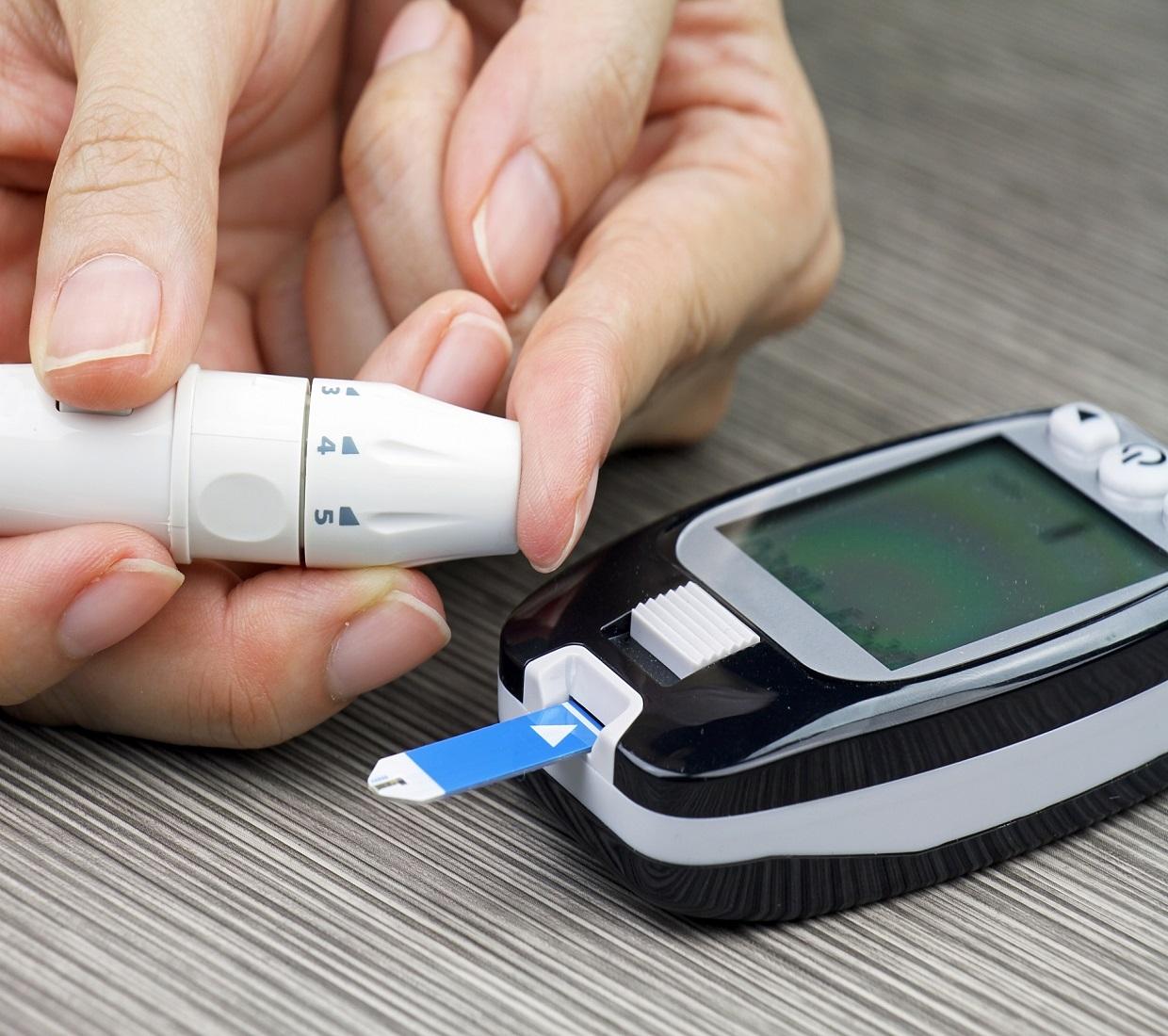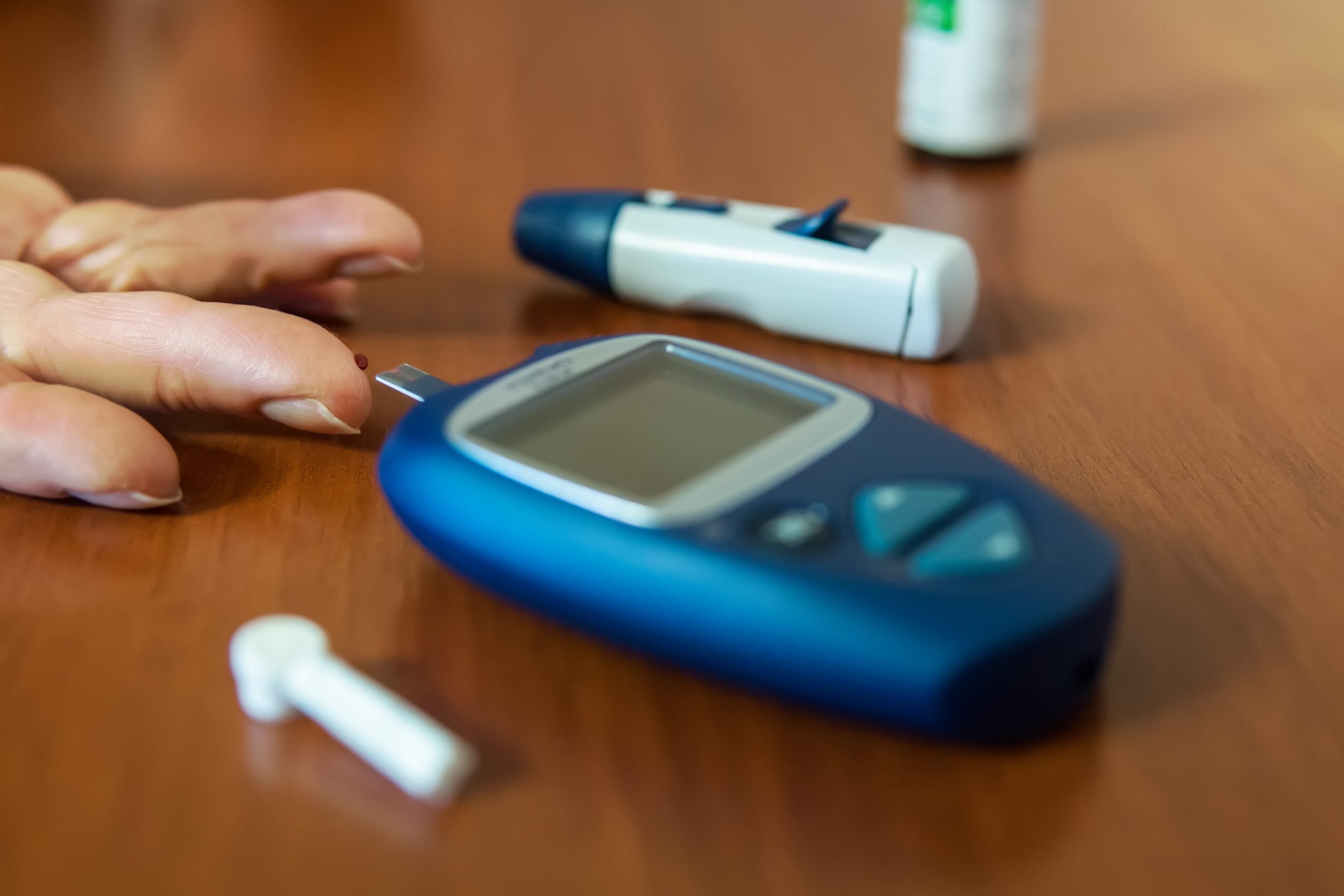Causes Of High Blood Sugar
The leading causes of high blood sugar or hyperglycemia include:
Diet: Glucose comes from food, so what you are eating causes high blood sugar. Carbohydrates are the most common culprit as they are broken down into glucose very quickly in the body. High-sugar foods, high-fat foods, and processed foods also cause blood glucose spikes and should be replaced with healthier options.
Stress: When you are stressed, more stress hormones and chemicals are released, which drives blood sugar levels up too. If the stress is only temporary, this is not a serious issue, but if you experience chronic stress or an anxiety disorder, you may experience high blood sugar levels more often.
Metabolic Syndrome: These are a collection of conditions that occur at the same time and increase your risk for type 2 diabetes. High blood pressures, excess fat around the waist, and high cholesterol or triglycerides are examples of these conditions. When these occur in the body together, your risk for diabetes increases as does your blood sugar and the risk for potential complications.
Physical Inactivity: A lack of physical activity contributes to elevated blood sugar. When you are physically active each day, insulin works more efficiently, and your blood sugar can be maintained.
What Happens During The Test
Most people can take an A1C test at any time without preparing beforehand. However, a doctor may sometimes request that a person avoids eating or drinking for 8 hours before the test.
Women who are pregnant may need to drink a sugary beverage 1 hour before the test.
A doctor or nurse will collect a blood sample, usually from a vein in the arm or hand. They will send the sample to a laboratory for analysis.
The Role Of Glucose Testing
There are several different reasons a doctor may recommend glucose testing for you. These include screening, diagnosis, and monitoring.
Screening
Screening means using tests to find health problems before those problems cause any symptoms or signs that you or your doctor might notice.
If you are over 40, overweight or obese, or have a heightened risk of developing diabetes, your doctor may order one or more screening glucose tests to find prediabetes or diabetes. People with prediabetes have glucose levels that are higher than normal but not high enough to be diagnosed with diabetes.
Diagnosis
Diagnosis is the use of tests and procedures to determine what underlying health condition might be causing noticeable signs and symptoms.
If you have symptoms of diabetes, high blood sugar, or low blood sugar, your doctor may order glucose testing for you. Glucose testing may be accompanied by other blood or urine tests to make an accurate diagnosis.
Monitoring
If you have been diagnosed with diabetes or prediabetes, your doctor may want you to track your blood glucose levels with an at-home glucose testing or monitoring device. Your doctor may also recommend periodic laboratory testing during check-ups to learn how your condition is being managed.
Also Check: Insulin Pump Basal Rate Calculator
What Is Considered A High Blood Sugar Level
If you just received a diabetes diagnosis, you may be wondering what blood sugar levels mean and how you should be creating goals based off of your blood glucose tracking. One of the most important things for you to know is what blood sugar levels are and when theyre considered to be high. Learning what steps to take if you find your levels are too high will help you stay safe.
Because diabetes is such an individual condition, the best first step is to consult your doctor about what is a healthy range for your blood sugar. Once youve gotten advice from your medical expert, you can begin to modify your lifestyle and continue to do additional research to improve your health and benefit your diabetes management journey. Before researching online, its important to remember that blood sugar levels are an individual, personal reaction to many factors, and can vary while still being within an acceptable range. Generalized numbers are often not a 100% accurate measure of personal health and there may be other factors that are affecting your blood sugar, resulting in confusing numbers when you check.
Make sure that you carefully follow the instructions your doctor has created for you. Diabetes can have negative effects if not managed properly. By understanding healthy blood sugar ranges, you can take steps to reduce or avoid added diabetes complications, and better understand what changes in blood sugar may be reflecting about your bodys health.
What Are Blood Sugar Levels

Your blood sugar levels, also known as blood glucose levels, are a measurement that show how much glucose you have in your blood. Glucose is a sugar that you get from food and drink. Your blood sugar levels go up and down throughout the day and for people living with diabetes these changes are larger and happen more often than in people who don’t have diabetes.
Recommended Reading: Diabetic Low Cholesterol Meal Plan
The Oral Glucose Tolerance Test For Diabetes
The oral glucose tolerance test is yet another method used to detect diabetes, but it is usually only done during pregnancy to diagnose gestational diabetes or for someone who is suspected of having type 2 diabetes yet has a normal fasting glucose level. It can also be performed to diagnose prediabetes.
Symptoms Of Diabetes That May Prompt An A1c Test
As mentioned by the , a doctor may recommend an A1C test if a person shows signs of poor glucose control, diabetes, or prediabetes.
Warning signs can include:
- increased urination, especially at night
- increased hunger
- numbness or tingling in the hands or feet
- slow healing sores
- more than 45 years of age
- family history of diabetes
- long-term use of glucocorticoids, antipsychotics, and certain medications for HIV
Read Also: Which Is Worse Diabetes One Or Two
What Are The Symptoms Of Hyperglycemia
The signs and symptoms include the following:
- High blood glucose
- High levels of glucose in the urine
- Frequent urination
- Increased thirst
Part of managing your diabetes is checking your blood glucose often. Ask your doctor how often you should check and what your glucose sugar levels should be. Checking your blood and then treating high blood glucose early will help you avoid problems associated with hyperglycemia.
Only Diabetics Get High Glucose Values
While a high glucose value can indicate diabetes, nondiabetics can also have higher values than normal. When researchers studied people wearing a continuous glucose monitor who did not have a diabetes diagnosis, they found 93% of individuals reached glucose levels that are considered dangerous, with 10% spending over 2 hours per day in these dangerous levels. Traditional glucose measurements, like a single point in time blood glucose value, are unable to capture these abnormalities.
There are actually several causes of high blood sugar unrelated to diabetes that the CDC recognizes. These include certain foods, like artificial sweeteners and coffee. Other factors like stress can do it, too. If you live with an endocrine or pancreatic condition, had surgery recently, or are experiencing intense physical stress , you may also see your glucose value rise.
Read Also: Does Diabetes Raise Your Blood Pressure
How Do I Prepare For The Plasma Glucose Level Test And How Are The Results Interpreted
To get an accurate plasma glucose level, you must have fasted for at least 8 hours prior to the test. When you report to the clinic or laboratory, a small sample of blood will be taken from a vein in your arm. According to the practice recommendations of the American Diabetes Association, the results of the blood test are interpreted as follows:
Fasting blood glucose level
- If your blood glucose level is 70 to 99* mg/dL . . .
- What it means: Your glucose level is within the normal range
*Values between 50 and 70 are often seen in healthy people
**The condition of “prediabetes” puts you at risk for developing Type 2 diabetes, high blood pressure, and blood lipid disorders
Last reviewed by a Cleveland Clinic medical professional on 02/21/2018.
References
Who Should Get Testing
Your doctor may include glucose testing in a panel of tests for background health information, such as during an annual examination. Your doctor may also want to screen you for elevated glucose if you are at a higher-than-average risk of diabetes. Risk factors for diabetes include:
- Being 45 years of age or older
- Being overweight or obese
- Sores that dont heal quickly
- Feeling very tired
Additionally, your doctor may order glucose testing if you have symptoms of low blood sugar or other health conditions.
Glucose testing is also an important part of managing prediabetes and diabetes after they are diagnosed.
Also Check: How Can You Cure Diabetes
Diabetes Testing In Children
Many children have no symptoms before they are diagnosed with type 2 diabetes. Most of the time, diabetes is discovered when a blood or urine test taken for other health problems shows diabetes.
Talk to your doctor about your child’s risk for diabetes. If your child’s blood sugar tests are higher than normal, but not yet at the level of diabetes , your doctor may instruct you in specific diet and exercise changes to help your child avoid getting diabetes altogether. Children with type 2 diabetes or prediabetes are almost always overweight or obese.
How Can One Tell If I Have Diabetes By Examining My Blood

Your body converts sugar, also called glucose, into energy so your body can function. The sugar comes from the foods you eat and is released from storage from your bodys own tissues.
Insulin is a hormone made by the pancreas. Its job is to move glucose from the bloodstream into the cells of tissues. After you eat, the level of glucose in the blood rises sharply. The pancreas responds by releasing enough insulin to handle the increased level of glucose moving the glucose out of the blood and into cells. This helps return the blood glucose level to its former, lower level.
If a person has diabetes, two situations may cause the blood sugar to increase:
- The pancreas does not make enough insulin
- The insulin does not work properly
As a result of either of these situations, the blood sugar level remains high, a condition called hyperglycemia or diabetes mellitus. If left undiagnosed and untreated, the eyes, kidneys, nerves, heart, blood vessels and other organs can be damaged. Measuring your blood glucose levels allows you and your doctor to know if you have, or are at risk for, developing diabetes.
Much less commonly, the opposite can happen too. Too low a level of blood sugar, a condition called hypoglycemia, can be caused by the presence of too much insulin or by other hormone disorders or liver disease.
Recommended Reading: How Much Does Diabetes Insulin Cost
Presence Of Certain Antibodies In Diagnosing Type 1 Diabetes
While this test doesnt signify diabetes persay, a positive test might indicate that someone might develop type 1 diabetes or is at a greater risk of developing the disease. Since type 1 diabetes is also an autoimmune disease, we can check for the presence of antibodies against Glutamic Acid Decarboxylase, Zinc transporters, and Insulin, explains. Dr. Adimoolam. Though, this doesnt mean that if you have these antibodies, you are automatically a type 1 diabetic. Rather, it means that you might develop type 1 or you are at a higher risk of having the disease.
Related Story
Low Blood Sugar Symptoms
Low blood sugar, also called hypoglycemia, is what happens when blood glucose levels drop too low. People who take insulin may have low blood sugar if they take too much insulin or mistime the insulin dose in relation to food, or if they exercise more than usual when there is fast-acting insulin on board .
Your healthcare provider will tell you when and how to check blood sugar, and when and how to treat low blood sugar. A low blood sugar is generally considered to be less than 70 mg/dL. A dangerously low blood sugar is below 54 mg/dL.
Low blood sugar can also be caused by many things including certain medications or combinations of medications, alcohol, endocrine disorders, eating disorders, and disorders of the liver, kidneys, or heart.
Here are some of the most common symptoms that someone with low blood sugar might experience:
- Lightheadedness
- Fainting
- Tingling lips
If your blood sugar is low you might start to feel some of the first signs of hypoglycemia like dizziness, lightheadedness, or sweating. The only way to know for sure if your blood sugar is low is to test it with a glucose meter or monitor it with a continuous glucose monitor such as the Dexcom G6.
Don’t Miss: Type 1 Diabetes Insulin Pump Cost
How The Random Blood Glucose And Rdw Cv Tests Are Done :
If your doctor wants Random blood glucose and RDW CV tests on you, you may need to go through these tests. During the Random blood glucose and RDW CV blood tests, a pathologist will put a needle into your veins and take out a small quantity of blood. A pathologist is a physician in the medical field who thoroughly studies the causes and effects of disease. Within a few hours you will get your Random blood glucose and RDW CV Test reports by your pathologist.
Is Having High Blood Glucose Dangerous
In short, it can be. Zanini says that untreated high blood glucose can lead to a wide range of health issuesâsome of the most common being chronic inflammation, heart disease, vision impairment, kidney disease, nerve damage, tooth decay, damaged blood vessels, and periodontal disease.
Having high blood glucose also puts us at risk of mitochondrial dysfunction and oxidative stress. The former is a condition in which mitochondria fail to produce energy for cells. The latter occurs when free radicals outnumber antioxidants in the body and increase the risk of disease and other damage.
Phipps notes to avoid these risks, catching high blood glucose early on, then taking action to treat it is extremely important.
Recommended Reading: When Do You Get Type 2 Diabetes
Shop For Your Own Lab Tests Online
QuestDirect helps you get the information you need to support a healthy lifewithout needing a doctors visit. You can conveniently shop for more than 45 lab tests that can help answer a wide range of questions about your health.
-
Select and purchase your test
-
Well send your kit directly to you
-
Return your testing kit to Quest
-
Get your confidential results sent directly to you
Types Of Glucose Tests
Several different glucose tests are commonly performed for screening and diagnosis.
Although glucose tests most often use blood or urine samples to test for and monitor diabetes, they can also be performed on samples of cerebrospinal fluid or joint fluid. Abnormal levels of glucose in the CSF or synovial fluid can be due to viral, bacterial, or fungal infections and other conditions.
If you have abnormal results on a glucose test, your doctor may want to repeat the test or have you take a different type of glucose test to confirm the results. The type of glucose test your doctor may recommend, how often its given, when and where you will receive the test, and whether you will need additional testing will depend on your unique situation.
Also Check: Reversing Type 2 Diabetes With Ketogenic Diet
Things To Know About High Blood Sugar
- Low high blood sugar is abnormally high blood levels of insulin in the blood. Hyperglycemia is a hallmark sign of diabetes and prediabetes, and diabetes is the most common cause of it. Severely elevated glucose levels can result in a medical emergency like diabetic ketoacidosis or hyperglycemic hyperosmolar nonketotic syndrome .
- The primary symptom of hyperglycemia is excessive amounts of sugar in the urine. Other symptoms and signs of high blood sugar levels in the blood are blurred vision, hunger , and headaches.
- Other conditions that can cause high blood sugar are pancreatitis, Cushing’s syndrome, unusual hormone-secreting tumors, pancreatic cancer, certain medications, and severe illnesses.
- Insulin is the treatment for people with type 1 diabetes, and life-threatening increases in glucose levels. People with type 2 diabetes may be managed with a combination of different oral and injectable medications. Hyperglycemia due to medical conditions other than diabetes is generally treated by treating the underlying condition responsible for elevated glucose.
What Abnormal Results Mean

If you had a fasting blood glucose test:
- A level of 100 to 125 mg/dL means you have impaired fasting glucose, a type of prediabetes. This increases your risk of developing type 2 diabetes.
- A level of 126 mg/dL or higher usually means you have diabetes.
If you had a random blood glucose test:
- A level of 200 mg/dL or higher often means you have diabetes.
- Your provider will order a fasting blood glucose, A1C test, or glucose tolerance test, depending on your random blood glucose test result.
- In someone who has diabetes, an abnormal result on the random blood glucose test may mean that the diabetes is not well controlled. Talk with your provider about your blood glucose goals if you have diabetes.
Other medical problems can also cause a higher-than-normal blood glucose level, including:
- Weight loss after weight loss surgery
- Vigorous exercise
Some medicines can raise or lower your blood glucose level. Before having the test, tell your provider about all the medicines you are taking.
For some thin young women, a fasting blood sugar level below 70 mg/dL may be normal.
Don’t Miss: What Foods Help Produce Insulin